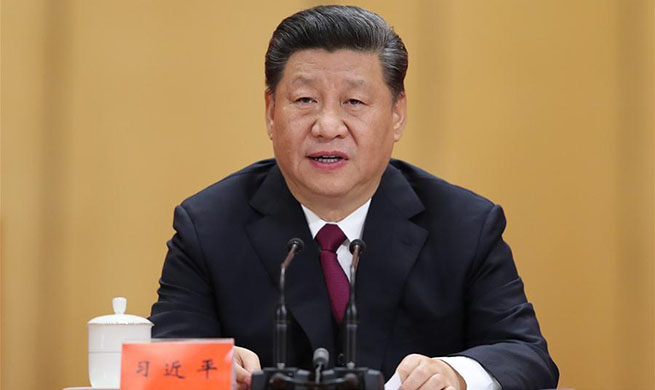by Xinhua writers Yao Yuan and Yu Pei
WUHAN, May 1 (Xinhua) -- When a Chinese toddler raises the ultimate question "Where did I come from?" the most common answer, or fudge, from the parents is "We found you in a roadside dust bin."
There are other variations, depending on the adults' imagination and quick wits, but do not expect any mention of sperm, wombs or sex organs.
Imparting the secrets of life and sex-related knowledge to small children makes most Chinese parents squirm, due to the country's traditional reticence on sex. That is where a bevy of imported picture books are finding success.
With cute cartoons and tactful explanations, such books are quickly gaining popularity among Chinese parents who find it hard to teach children to protect their private parts or answer questions like "Why is there milk in mom's boobs?"
In the provincial library of central China's Hubei, Liu Hong was reading the American picture book "Your Body Belongs to You" to her 4-year-old daughter, explaining why strangers are not allowed to touch certain parts of her body.
"I try not to use the picture books as materials of 'sex education' but more as a gentler explanation of differences between boys and girls. The cute pictures help kids understand their bodies without shame," Liu told Xinhua.
Librarian Xu Feifei said the library has been buying more sex education books for children and adolescents in recent years to cater to the growing demands from borrowers.
In big cities like Beijing, Shanghai and Guangzhou, sex education picture books are also found in bookstores, shedding light on the genre's greater reception in China's two-child era, as well as younger parents' open attitude toward sex.
Li Bo, chief editor of the Chinese version of Japanese bestsellers "The Story of Willy" and "The Story of Boobs," said their books are also selling well online, thanks to the country's booming e-commerce.
The editor with the Beijing Poplar Culture Project Co., Ltd. said online sales of the two books have more than tripled in the past two years to reach nearly 190,000, a figure unimaginable when they were first introduced in 2012.
"We had a really hard time deciding whether to import the two books into China," she said. "In the beginning, the sales growth was slow ... some parents blast their 'lewd' content, and kindergartens refused to buy them."
Chinese parents used to keep mum on sex topics in the presence of young children, while teachers, despite the opening of sex education classes in schools, often skip over such content.
Experts, however, have stressed the importance of early-age sex education to children's self-protection and emotional development. Hu Ping, an expert on children's sexuality psychology and sex education, said sex education influences children's attitudes toward love, marriage and family, which is "sometimes neglected in China's test-oriented education system."
While rising public awareness helped open up the demands for sex education books in recent years, Li said such books are still scarce in the Chinese market.
"Chinese are reserved on sex topics, so many popular foreign books that deal with the issue more openly may not sell well here. In terms of imports, we don't have many choices," said the editor.
Original works are also hard to find, as the genre, new to most Chinese writers, requires both profound knowledge on the issue and abundant experience with children. The good news is that strong market demands are drawing more resources into this sector.
"We're planning on creating our own sex education picture books for children. We believe in the near future, Chinese families will have more choices when educating their children about sex."

















